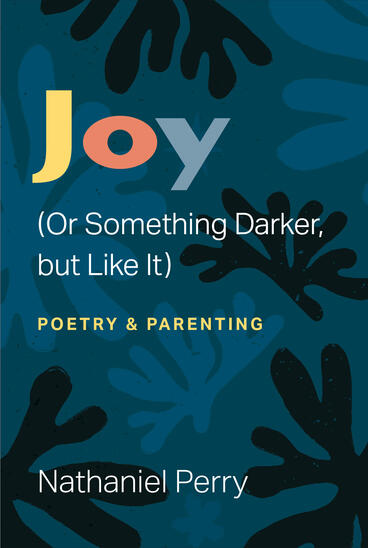Joy (Or Something Darker, but Like It)
poetry & parenting
Thinking about parenting through the lens of poetry
Description
Joy (Or Something Darker, but Like It), the first book of nonfiction by poet Nathaniel Perry, is a group of essays that considers poetry in the context of parenting—what poems and poets might teach us about parenting, what parenting might teach us about poetry, and also, what either of those things might have to teach us about simply being a relatively successful human being. While other poets have written about parenthood, few books consider how parenthood and poetry themselves intersect. The essays are affable and never technical, but take seriously the idea that thinking about poems might help us all think about our other roles in life, as parents, lovers, citizens, and friends. The book, in the end, imagines that this kind of insight is maybe one of the things most useful about poetry. It isn't, or at least doesn't have to be, always about itself; it can instead, surprisingly and wonderfully, be about us.
Each of the twelve essays considers a different poet—Edward Thomas, Henry W. Longfellow, George Scarbrough, Elizabeth Bishop, Geoffrey Hill, Primus St. John, Robert Hayden, Elizabeth Coatsworth, Gwendolyn Brooks, Robert Frost, E.A. Robinson, and Belle Randall—and, alongside them, different concerns of parenting and living. Organized in chronological order, they track the growth of Nathaniel Perry’s own children who pop up from time to time in a believable way. Essays consider the idea of devotion and belief, the idea of imperfection, the small details we can focus on as parents, and the conceptions of the world we pass along to our children. Together these essays not only represent the author's personal canon of poets who have been important to him in his life and work, but also present a diverse slice of American poetry, in voice, form, identity, origin, and time period.
Nathaniel Perry is the author of two books of poetry, Nine Acres and Long Rules: An Essay in Verse. He is Professor of English at Hampden-Sydney College.
Reviews
“Neil Perry may have invented a whole new genre—the close reading of poems as a step-by-step parenting guide, with not all joking aside—but the essays in this fine collection are much more than that. Behind the day-to-day conditions of living with poems and also with children, is an underlying claim for connection, to live with our shared struggles and divisions, and the doubts that accompany them, and the implied understanding that most of us live with hope, and a hope that will get us through.”
- Maurice Manning, Author of Snakedoctor
“In Joy (Or Something Darker, but Like It), Nathaniel Perry examines the baffling hierarchies of parent and child through close readings of both canonical and neglected poems. With courage and humility, Perry proposes a tentative epistemology, infused with the negative capability of a child's perspective and a poet's attention to the borders of the unknown.”
- Michael O’Leary, Editor of Flood Editions
“There isn’t anything poet, essayist, gardener, teacher, and parent Nathaniel Perry might write—shopping list, marginalia, lunchbox note, graffiti tag, refrigerator poem—that I wouldn’t want to read. In his beautiful poems and now, in this unique treasure trove of essays about poetry and parenting, Perry evinces at every turn a humble, amiable brilliance. We range with Perry through the thickets and clearings, the tangents and epiphanies of parenting (the worry, the care, the fear, the failures, the illuminations, the unlooked-for gifts) and along the way we also learn a gracious plenty about poetry and poems—in particular, poets and poems that may have been overlooked or gotten lost in the current Zeitgeist. The grateful reader emerges from the cosmos of this book with “the awareness of awareness, which is certainly more than darkness.”
- Lisa Russ Spaar, Author of Paradise Close: A Novel and Madrigalia: New & Selected Poems

